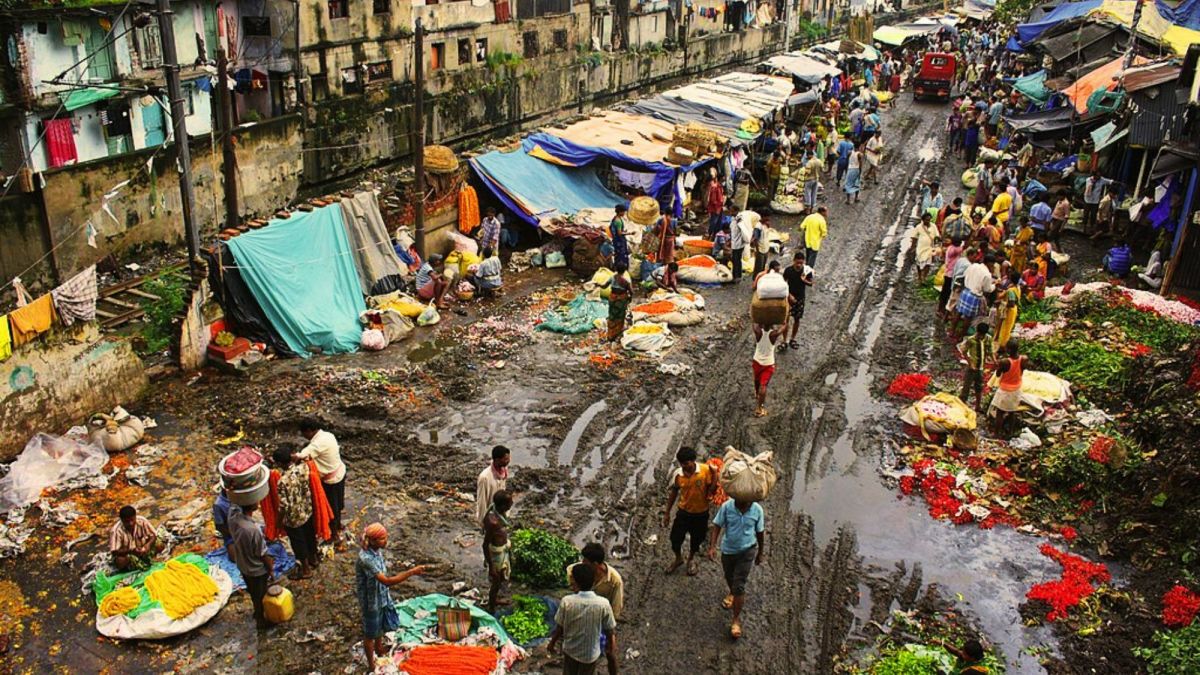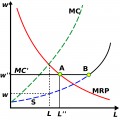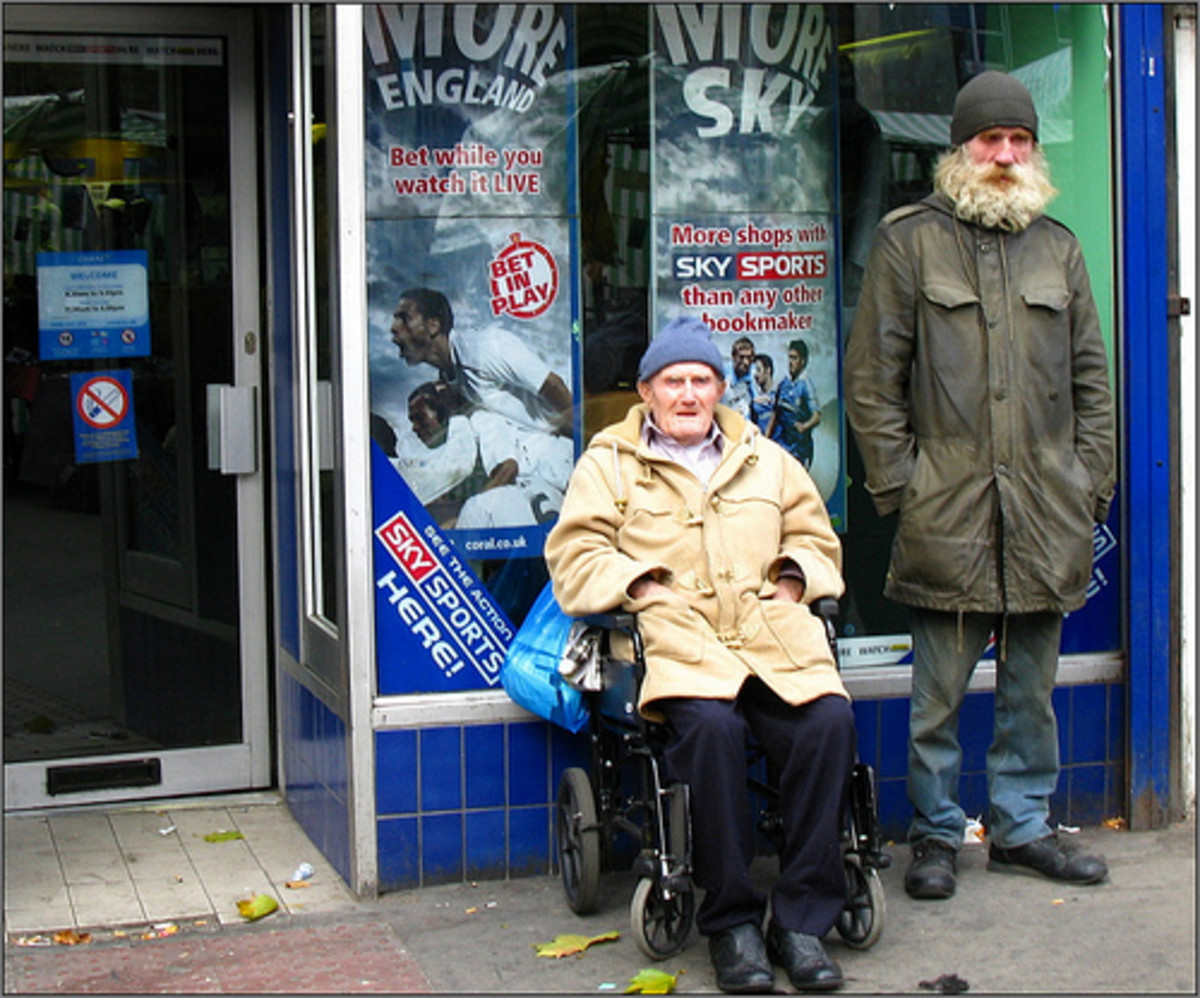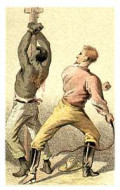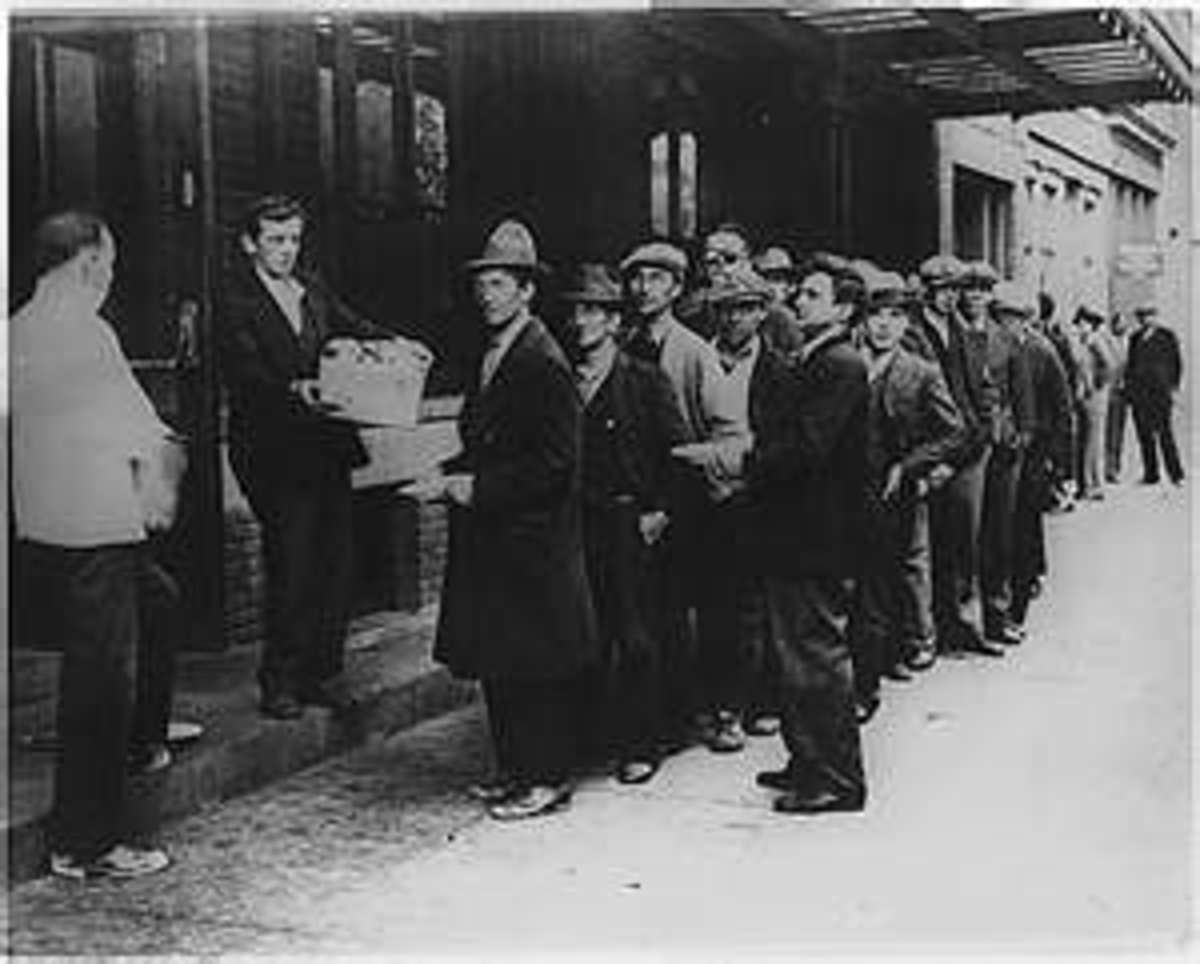You Have Chosen to be Poor
You Have Chosen to be Poor©
October 27, 2011
In response to the protesters in New York City, who were voicing their discontent with the financial market corruption, Republican Presidential hopeful Herman Cain said, "Don't blame Wall Street, don't blame the big banks, if you don't have a job and you're not rich, blame yourself. It is not someone's fault if they succeeded, it is someone's fault if they failed," the ex-Godfather's Pizza CEO declared.[1]” This is not the first time this conservative line of logic has been presented in defense of corporate wealth. George Washington University economics professor Walter E. Williams in a 2003 article declared, “If you're a poor adult in America, for the most part, it's all your fault. That's true, at least today, whether you're black, white, brown or polka dot.”[2]Both men are absolving corporations and the wealthy of any responsibility for the economic conditions people face.
I will take up the challenge; as such, this is not going to be a discussion about race it will be focused on the economic class structure in America. This article will begin by looking at Dr. Williams’ article, because at this time Mr. Cain does not provide any proof to support his political rhetoric. Since there is no official government definition of “poor” or “working poor”, so as a point of departure the Office of Management and Budget’s (OMB) definition of the phenomenon of poverty will be used.
Poverty definition
Following the Office of Management and Budget's (OMB) Statistical Policy Directive 14, the Census Bureau uses a set of money income thresholds that vary by family size and composition to determine who is in poverty. If a family's total income is less than the family's threshold, then that family and every individual in it is considered in poverty. The official poverty thresholds do not vary geographically, but they are updated for inflation using Consumer Price Index (CPI-U). The official poverty definition uses money income before taxes and does not include capital gains or noncash benefits (such as public housing, Medicaid, and food stamps).[3]”
According to the U.S. Census Bureau, there are 48 possible thresholds to determine if a person or household is living below the poverty line[4]. For a single person under the age of 65 that level is $11,344.00 annual income. If a person is working fulltime[5], that equates to $5.45 an hour, which is a $1.80 more than the federal minimum wage standard. Theoretically, if a person is single and working fulltime, with the assumption that the employer is incompliance with all wage laws, no one should be living below the poverty line. Yet in 2009, 12.4% of our population was living at or below the poverty line. A superficial review of the data just presented seems to support Dr. Williams’ theory, “A married couple, both working full time at a minimum wage job that pays $5.15[6] per hour, would earn an annual income of $20,600. Keep in mind that few adults earn wages as low as the minimum wage and those who do earn a higher wage after a few months on the job. If a married couple, both working at the minimum wage had no children, they would not be poor; if they had two children, they wouldn't be living in the lap of luxury but neither would they be below the poverty threshold.[7]”
Dr. Williams is making the argument that the poverty line is the point that separates the poor from the not poor. I would argue that the line of separation should be higher. A problem with using the U.S. government threshold of poverty as the dividing line is the fact that it applies across the nation regardless of geographic realities. Depending on the location, the amount of funds required to meet basic living expense varies greatly. If you were living in Dickey County North Dakota (ND), at $7.25 an hour you would be about the living wage required to sustain a single person[8]. However if you were living in Cass county ND, at the same pay rate you would be .69 cents an hour short of the living wage[9]. That means in a year, working 40 hours a week you would fall $1,435.20 short of what you needed to live.
A couple with one child, both parents are working at a minimum wage job, together they are making $14.50 an hour. Technically again they are not living at the poverty line, however to use my example of living in Dickey County ND, they are falling short of a living wage by $2.88 an hour or $11,980.80 annually[10]. In 2009, the poverty rate in ND was 11.7% and in Dickey County, it was 12.6%[11]. A significant percent of the population of that county (approximately 666 out of 5289 people) is living below the poverty level. At the same time the unemployment rate for the county was 4.4%[12] and for the state it was 4.3%[13]. Unemployment and underemployment have afar reaching effect, not only is the worker impacted, but their family as well. Looking at the ND Job Service[14] web site on October 25, 2011 there were 105 job openings in the county. Many of the positions posted were only part-time or temporary work, even if all the vacancies were filled, it does not allow for full employment for the county. There are not enough jobs or jobs that pay enough to keep all the population out of poverty, let alone to meet the minimal living expenses for the area.
This leads into Mr. Cain’s statement, “if you don't have a job and you're not rich, blame yourself[15]”, which has two distinct parts that need to be examined separately. First Mr. Cain is making the assumption with, “if you don't have a job” that for every American that is able to work, there is a job. Mr. Cain is forgetting one of the major tenants of the Capitalistic system, in that there is always some level of unemployment. My old college economic textbook explains that even in times of full employment that does not mean everyone has a job. “One way of defining full employment is to identify some level of unemployment as “normal,” or acceptable, and only count unemployment in excess of that amount[16]” So even in full employment there are not jobs for everyone.
This article is not trying to absolve responsibility each adult has to themselves and the society. I currently make a living by holding employees accountable for their own actions; a part of that process includes terminating their employment. However, individual actions do not account for all unemployment situations. According to the Bureau of Labor Statistic, (BLS) in August of 2011 alone, “Employers took 1,587 mass layoff actions in August involving 165,547 workers.[17]” When the BLS measures “mass layoffs” they are only looking at events that involve 50 or more employees for a single employer. The reasons for the mass layoffs are many; it could be due to a lack of work, slipping sales, change in production process, transferring work to a foreign county, or to increase profits of share holders. From September 2010 to August 2011 the seasonally adjusted numbers for mass layoffs events in the U. S. was 18,354, which equated to 1,712,525[18] initial unemployment claims.
The second part of Mr. Cain’s statement “you're not rich, blame yourself.” This goes far beyond what Dr. Williams was presenting. This is a reiteration of the mythology of America, which does not line up with the reality. The problem with using terms such as “rich” or “poor is there is no agreed upon definition. According to dictionary.com, rich is “having wealth or great possessions; abundantly supplied with resources, means, or funds; wealthy: arichman;arichnation.[19]” The Wall Street Journal tried to address this question of what is rich in a 2008 article. “A net worth of $1.4 million will put you in the top 5% of Americans, according to the Federal Reserve. Yet to the wealthy today, having $1 million (including the value of your homes and certain retirement assets) seems like chump change. Just as there are two economies today — the rich and everyone else — there are also diverging definitions of rich. There’s America’s definition (the top 5%) and the wealthy’s definition.[20]”
I do not believe that Mr. Cain is claiming that all Americans can have their personal wealth that matches the top 5%. If that were the case then inflation would be astronomical. To be generous, let us assume that he means that everyone has a chance to become wealthy. It is true there are examples of people who have come from poverty, who through work and other factors are now considered wealthy. However just because the possibility exists does not mean that everyone has the same chance or faces the same obstacles or that it is probable that they can. The social economic conditions a person comes from will greatly influence the chances of their success. For every example of a person who was able to break from the joke of poverty, there are multitudes of people who followed the every changing rules of the game who do not.
I picked Dickey county ND for my example because it is rural, it does not have a large population and the cost of living is not high. Given that the medium household income for the county is only $40,400.00 annually. Also it has homogenous population; it is a 96.5% Caucasian. I could have picked New Castle county Delaware, which has a very different social and economic composition and come up very similar results. In New Castle County has a mixture or rural and urban population and the unemployment rate is 8.3%[21] while the poverty rate is 10.1[22]%. The phenomenon of unemployment, underemployment and poverty transcends geography to adversely impact all regions of the country.
The claim that employment alone should be enough to get you out of being poor, and that if you are still poor it is your own fault is an attempt to remove responsibility that individuals have to the society. There is a quote by Dr. Obery M. Hendricks Jr., which specifically addresses accountability within a society for the economic status of people. “It is true that no one, whether rich or poor, strong or weak, should ever be absolved of responsibility for his or her own actions. And it is important that those in need be counseled to do as much as they can to help themselves. But it is more than important, it is our sacred prophetic duty, to identify and call by name the polices, government officials, corporate officers, events and developments, and greed elites that are responsible for the impoverishment of the people.[23]” People on both sides of the equation have to take responsibility and be held accountable for their action or inaction. However, even though the focus of this article has been on jobs, they are not the only things that will have to change. Several catalysts in addition to equitable employment are to break the cycle; healthcare and education are just as critical in the challenge of creating a society that is self sufficient.
I usually like to close my articles on a positive note; however I think that George Carlin summed it up best, “You know how I describe the economic and social classes in this country? The upper class keeps all of the money, pays none of the taxes. The middle class pays all of the taxes, does all of the work. The poor are there just to scare the sh_t out of the middle class. Keep them showing up at those jobs.”[24]
[1]Shahid, Aliyah. Daily News Staff Writer. NYDailynews.com. Herman Cain to Occupy Wall Street protesters: If you're not rich 'blame yourself'. http://articles.nydailynews.com/2011-10-05/news/30265175_1_herman-cain-pizza-ceo-protesters. Wednesday, October 05, 2011. (accessed October 15, 2011)
[2] http://econfaculty.gmu.edu/wew/articles/03/povamerica.html
[3] http://www.census.gov/hhes/www/poverty/methods/definitions.html. (accessed October 15, 2011)
[4]http://www.census.gov/hhes/www/poverty/methods/measure.html (accessed October 15, 2011)
[5] Fulltime defined as person being paid for 40 hours a week, 52 weeks a year
[6] When Dr. Williams wrote this article the minimum wage was $5.15 an hour
[7] http://econfaculty.gmu.edu/wew/articles/03/povamerica.html
[8] http://www.livingwage.geog.psu.edu/counties/38021
[9] http://www.livingwage.geog.psu.edu/counties/38017
[10] http://www.livingwage.geog.psu.edu/counties/38021
[11] http://quickfacts.census.gov/qfd/states/38/38021.html
[12] http://www.ndworkforceintelligence.com/analyzer/startanalyzer.asp
[13] IBID
[14] http://www.jobsnd.com/
[15] Shahid, Aliyah. Daily News Staff Writer. NYDailynews.com. Herman Cain to Occupy Wall Street protesters: If you're not rich 'blame yourself'. http://articles.nydailynews.com/2011-10-05/news/30265175_1_herman-cain-pizza-ceo-protesters. Wednesday, October 05, 2011. (accessed October 15, 2011)
[16] Amacher, Ryan C. and Holley H. Ulbrich. Principles of Economics 5th Edition. South-Western Publishing. 1992. Page 110
[17] Bureau of Labor Statistic, U.S. Department of Labor News Release. For release 10:00 a.m. (EDT) Thursday, September 22, 2011 USDL-11-1375. www.bls.gov/news.release/pdf/mmls.pdf. (accessed October 16, 2011)
[18] IBID
[19] http://dictionary.reference.com/browse/rich
[20] Frank, Robert. Wall Street Journal. A Rich Person’s Definition of Rich. January 9, 2008. http://blogs.wsj.com/wealth/2008/01/09/a-rich-persons-definition-of-rich/. (accessed October 20, 2011)
[21] http://www.washingtonpost.com/wp-srv/special/nation/unemployment-by-county/
[22] http://quickfacts.census.gov/qfd/states/10/10003.html
[23] Hendricks Jr., Obery M. The Politics of Jesus: Rediscovering the True Revolutionary Nature of Jesus’ Teaching and How they Have been Corrupted. Doubleday. 2006. page 148
[24] George Carlen. Jammin' in New York, (Paramount Pictures) 1993
© 2011 Mark Monroe


